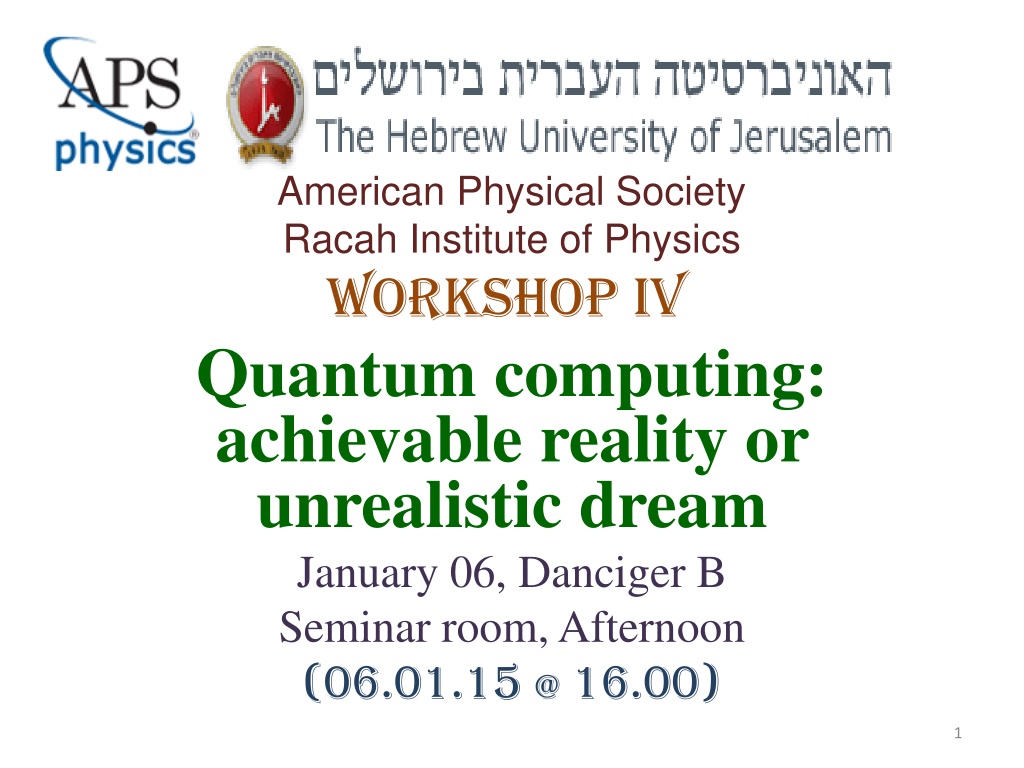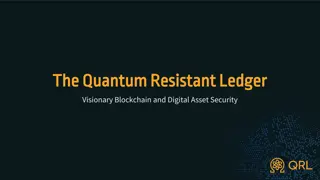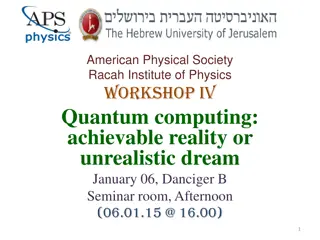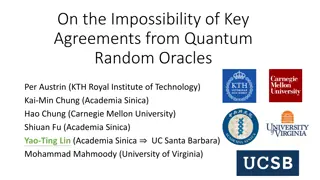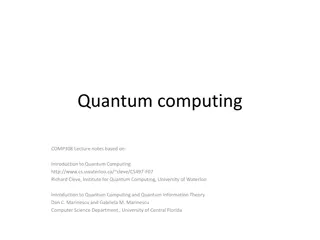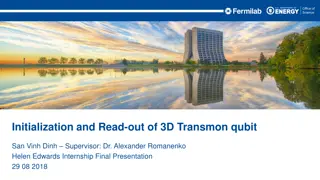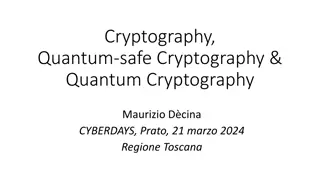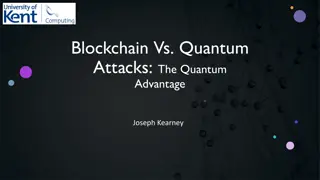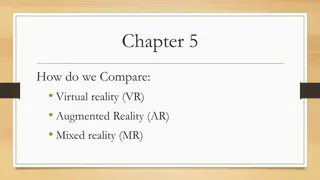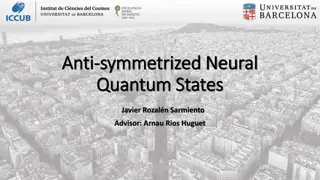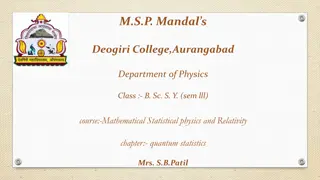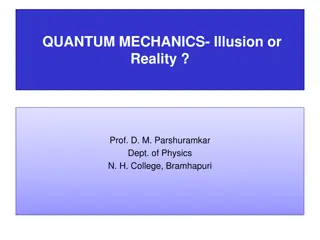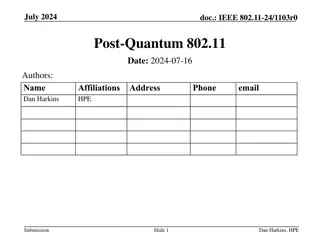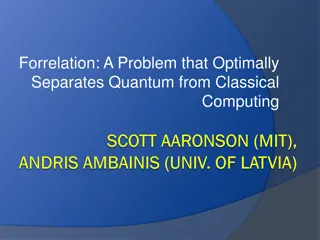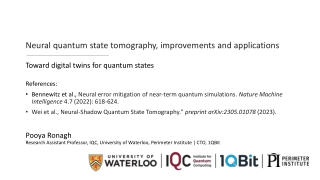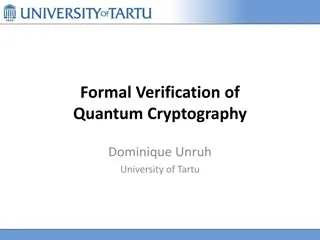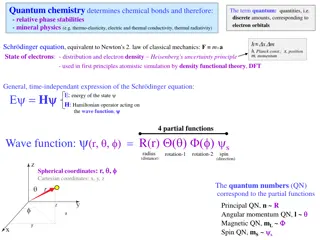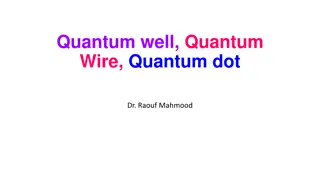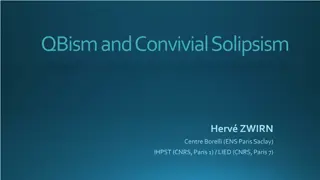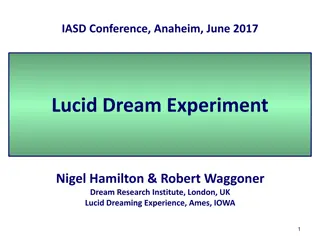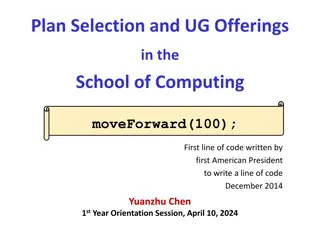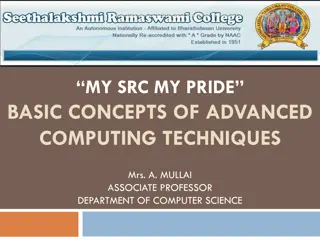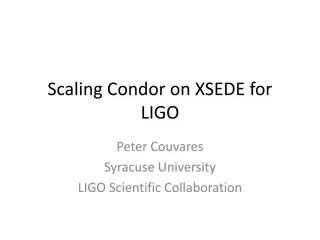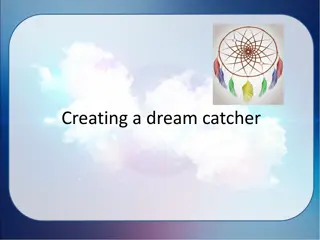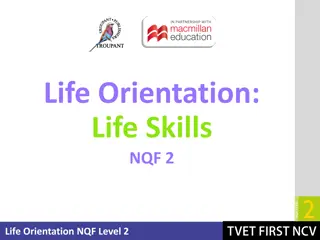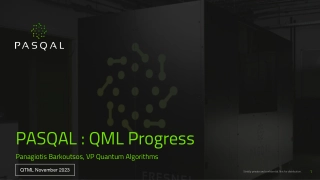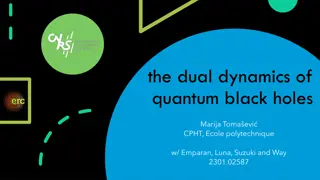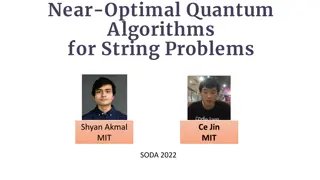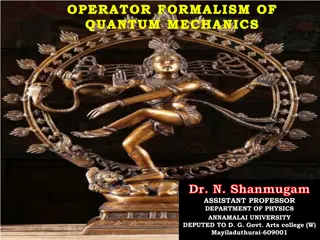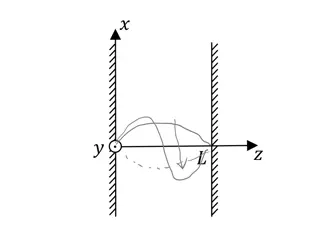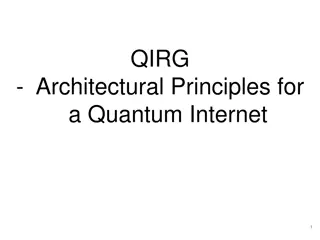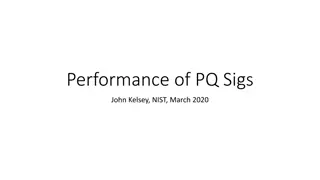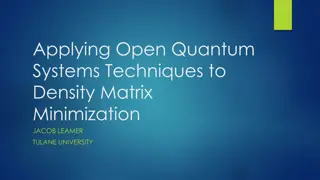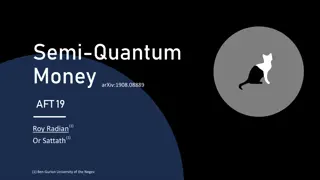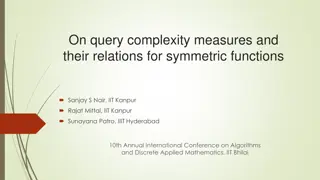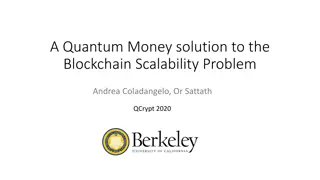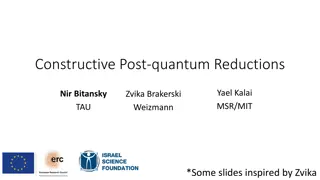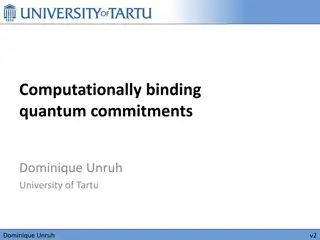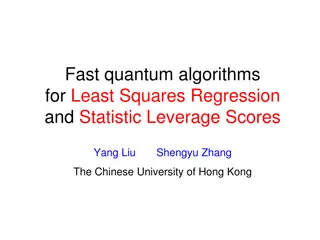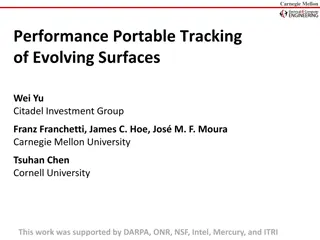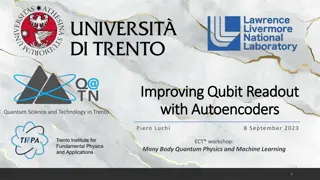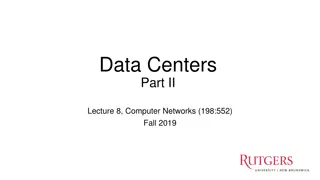Quantum Computing: Achievable Reality or Unrealistic Dream Workshop
Explore the intriguing realm of quantum computing through insightful lectures by Prof. Gil Kalai and Prof. Nadav Katz at the American Physical Society workshop. Delve into the possibilities, failures, and advancements in quantum information science. Join the discussion on the state-of-the-art developments in quantum computing and the implications of quantum supremacy. Unravel the mysteries of quantum physics and its practical applications in the modern era.
Download Presentation

Please find below an Image/Link to download the presentation.
The content on the website is provided AS IS for your information and personal use only. It may not be sold, licensed, or shared on other websites without obtaining consent from the author. Download presentation by click this link. If you encounter any issues during the download, it is possible that the publisher has removed the file from their server.
E N D
Presentation Transcript
American Physical Society American Physical Society Racah Institute of Physics Workshop IV Quantum computing: achievable reality or unrealistic dream January 06, Danciger B Seminar room, Afternoon (06.01.15 @ 16.00) 1
Program Program 16.00 16.10 Prof. Miron Ya. Amusia Introductory remarks 16.10 17.00 Prof. Gil Kalai What can we learn from a failure of quantum computers, 17.00 17.50 Prof. Nadav Katz The Quantum information science - the state of the art. 17.50 -18.15 - General discussion 2
Prof. Gil Kalai Was born in 1955. Henry and Manya Noskwith Professor of Mathematics at HUJI Adjunct professor of mathematics and of computer science at Yale University Editor of the Israel Journal of Mathematics Recipient of the Po lya Prize in 1992, TheErdo s Prize, Israel Mathematical Society, 1993, The Fulkerson Prize, 1994 Rothschild Prize, 2012 in mathematics 3
Prof. Gil Kalai What can we learn from a failure of quantum computers Quantum computers are hypothetical devices that enable us to perform certain computations hundreds of magnitude of order faster than digital computers. This feature, coined quantum supremacy by John Preskill, could be manifested by experiments in the near future through, for example, Boson sampling, a very simple setting of non-interacting bosons. In the lecture I will explain the reasons why computationally superior quantum computers cannot work, what kind of modeling of quantum noise would not allow quantum supremacy, and what predictions on quantum physics are supported by the failure of quantum computers. 4
Prof. Nadav Katz Was born in 1975. Since 2012 Associate Professor of Physics at HUJI 12/2013 IPS Young Physicist award of excellence, 06/2013 ERC starter grant awarded 2008-2011 Alon fellowship for returning young excellent researchers 2006-2007 Rothschild postdoctoral fellowship award 2005 Kennedy prize (highest prize given to graduating PhD), Weizmann Institute of Science 2005 Israeli parliament excellence award to graduating PhD 5
Prof. Nadav Katz Quantum information science - the state of the art Twenty years have passed since the explosion of interest in quantum computing and information processing began. Initially the experimental community was highly skeptical and the ideas were thought to be a theoretical fancy, exponentially sensitive to noise in practice. However, the advent of error threshold theorems proved a remarkable fact about quantum information - it is a unique amalgam of analog and digital information. Under reasonable error models, subtle correction protocols can be applied, leading to a scalable and optimistic prospect for quantum computing. Focusing on some key implementations, I will present a unified perspective of the experimental progress, which has been remarkable in the past decade. I will conclude with a discussion of fundamental sources of decoherence, and try to determine the ultimate limits which known physics places on quantum complexity, in the lab and in "wild" nature. 6
SOME COMMENTS on 0ur meetings SOME COMMENTS on 0ur meetings W I. Crossing the domains within physics: fullerenes and endohedrals as an object, where atomic, molecular and condensed matter physics are getting together 09.01.12. W II. Friction in physics and society - 12.12.12. 12.12 12.12. W III. What physics can say about climate changes -25.12.13. WIV. Quantum computing: achievable reality or unrealistic dream Style is clear. Proposals are welcome. 12.12.12. at 7
Basic ideas and reality I By chance in 2012 I run across M. Dyakonov s State of the Art and Prospects for Quantum Computing . I red it like a good detective overnight I learned his main points: 1. Theorems are far from reality, 2. Quantum states are mixed without control, 3. Different disturbances are unescapable. Remember pure math is not the real world I became not educated but armed and thus dangerous . I gained conclusions to test and had nasty questions to ask 8
Basic ideas and reality II Conclusions to test: 1. Almost all Quantum Computing promises are a big bluff 2. They cannot be fulfilled due to unescapable existence of the real world in 10 -1000 years 3. Even if one would build real QC device it has no suitable problems All this resonated with my feelings How to test? Ask publicly prominent lecturers at big conferences nasty questions! 9
Basic ideas and reality III Nasty questions to ask: 1. What QC managed to factorize using the famous Shor s algorithm during last fifteen yeas, except 21=3x7 and 15=3x5 (not yet done)? 2. How, e.g. use anyons , not onions, for QC? 3. What, except modeling of not too big strongly interacting system could be subject of QC? These questions were tested at Euroscience Open Forum, July 2012 (~4000 attendees) and ICPEAC, July 2013 (~1000). There was no short, clear and/or convincing answer! So, we get together here and intend to listen about pro and cons from experts in the field 10
Quantum Computing controversy Quantum Computing controversy 1. Quantum Computation: A Grand Mathematical Challenge for the Twenty-First Century and the Millennium , S. J. Lomonaco, Jr., (2002). 2. I believe that, in spite of appearances, the quantum computing story is nearing its end, not because somebody proves that it is impossible, but rather because 20 years is a typical lifetime of any big bubble in science, M. I. Dyakonov (2012). 3. 3. Who is right? We have experts here! Who is right? We have experts here! Listen, ask question, decide. Listen, ask question, decide. 11
The podium is yours, our reliable and careful experts At first Gil and then Nadav 12
Choice of Date Some - Specifics of year 2015 1.2015 : 5 = 403, where 3 + 4 = 7 Holy number 2. 2.2015 2015 in binary 11111011111 (number of digits from each side is 5!) 3. 1+2+4+8+16+64+128+256+512+1024 =20+21+22+23+24+25+26+27+28+210 =2015 2015 system is 13
